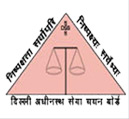
Delhi Subordinate Services Selection Board
UGC frame guidelines to start courses on Indian Heritage
by Praveen On 5/15/2023 3:50:12 PMAccording to UGC guidelines, students can earn and store credits through an academic credit bank and receive digital certificates through the NAD
New Delhi: The University Grants Commission has instructed universities to offer Indian heritage and culture-based certificate courses in order to promote India's extensive cultural heritage. In accordance with the guidelines issued by the UGC on Wednesday, the courses will be short, modular, multi-tier, credit-based programs based on Indian heritage and culture with multiple entry points to pique the interest of international visitors visiting India.This will incorporate scattering and conferring of information on different learning in general human qualities, Vedic Maths, Yoga, Ayurveda, Sanskrit, Indian dialects and even "consecrated strict locales" the rules state. Learning about Indian heritage, Indian literature, Indian sculpture, Indian music and dance styles, Indian drama, visual and performing arts, and the Indian knowledge system are all required by the guidelines.
The University Grants Commission (UGC) has identified 46 "tentative areas" in which universities may offer courses. It incorporates Indian culture, Indian morals or values, Indian music or dance, Indian old stories, Indian composition framework, soothsaying, and Indian customs among others. The list of courses also includes literature and languages from India, such as Kannada, Pali, Prakrit, Sanskrit, Malayalam, and Bengali.
The course can be offered at three distinct levels depending on the degree of the learning outcomes and the rigour of the relevant disciplines' curricular structure: levels: beginning, intermediate, and advanced. According to the rules, individuals from any nation having interests in Indian legacy and information framework and who signed up for such unambiguous courses for procuring information will be qualified for affirmation. The specific eligibility requirements are up to the universities offering these programs.
In April, the UGC invited public feedback on draft guidelines for including Indian Knowledge Systems (IKS) in the higher education curriculum.Empanelment of artists at universities
The UGC has also issued guidelines to make it easier to hire artists or Kala gurus at universities. The universities are allowed to invite any kala guru or artist who has participated in at least five internationally, nationally, or government-recognized concerts, exhibitions, or art fairs, per the rules. It is also possible to invite artists from a particular art form's traditional families or Gharana to teach if they can provide evidence of the artist's fame. A committee appointed by the educational establishment will evaluate the artists-in-residence application. The span of commitment can be chosen by the concerned college.
The guidelines have separated artists into three categories: artists, parama guru, also known as outstanding artists, and parameshti guru, also known as eminent artists. According to the guidelines, the appointed Kala Gurus will be provided with a suitable, well-equipped workplace with the necessary facilities, materials, and other support for imparting knowledge.
